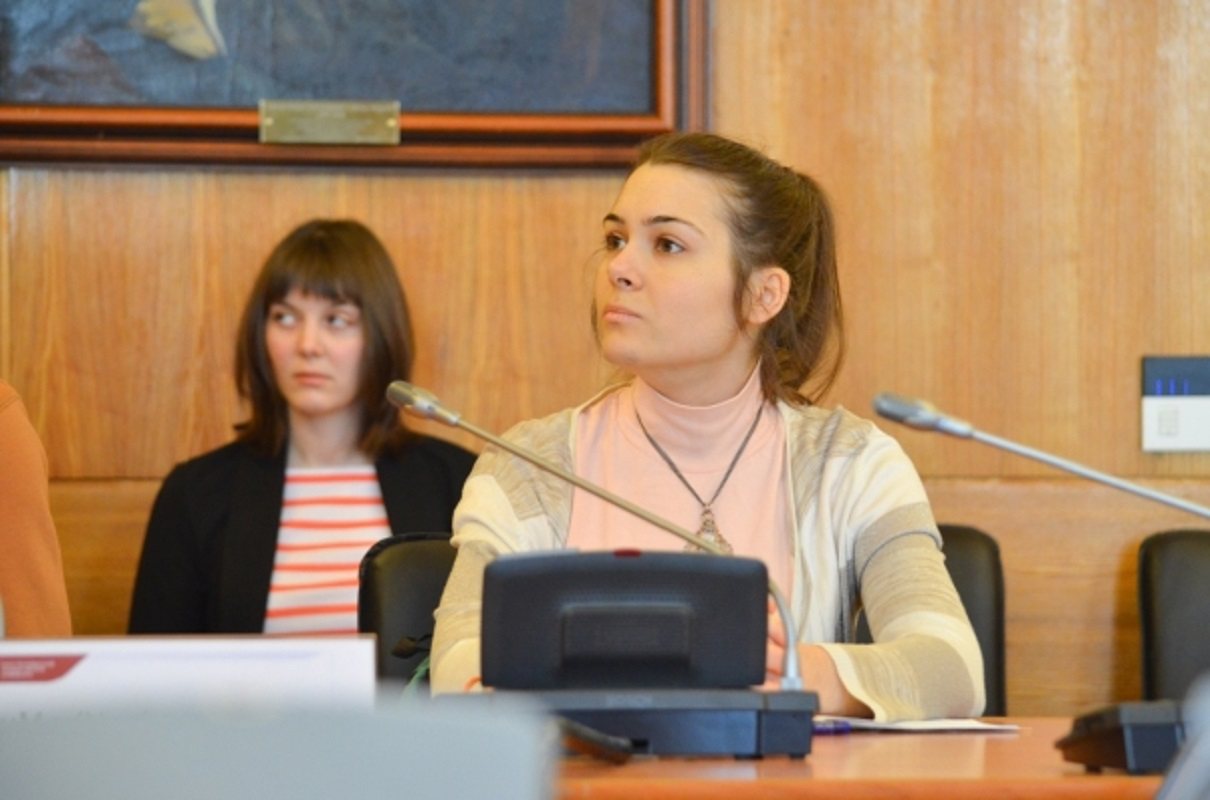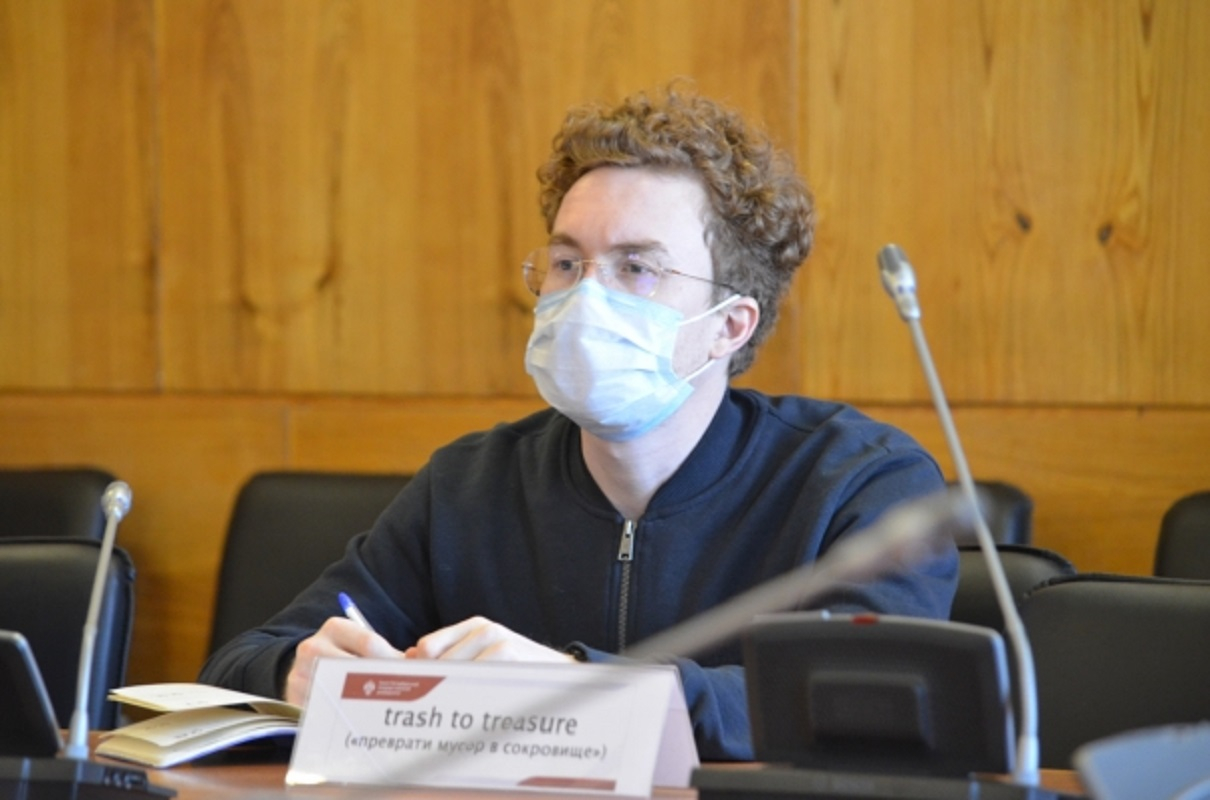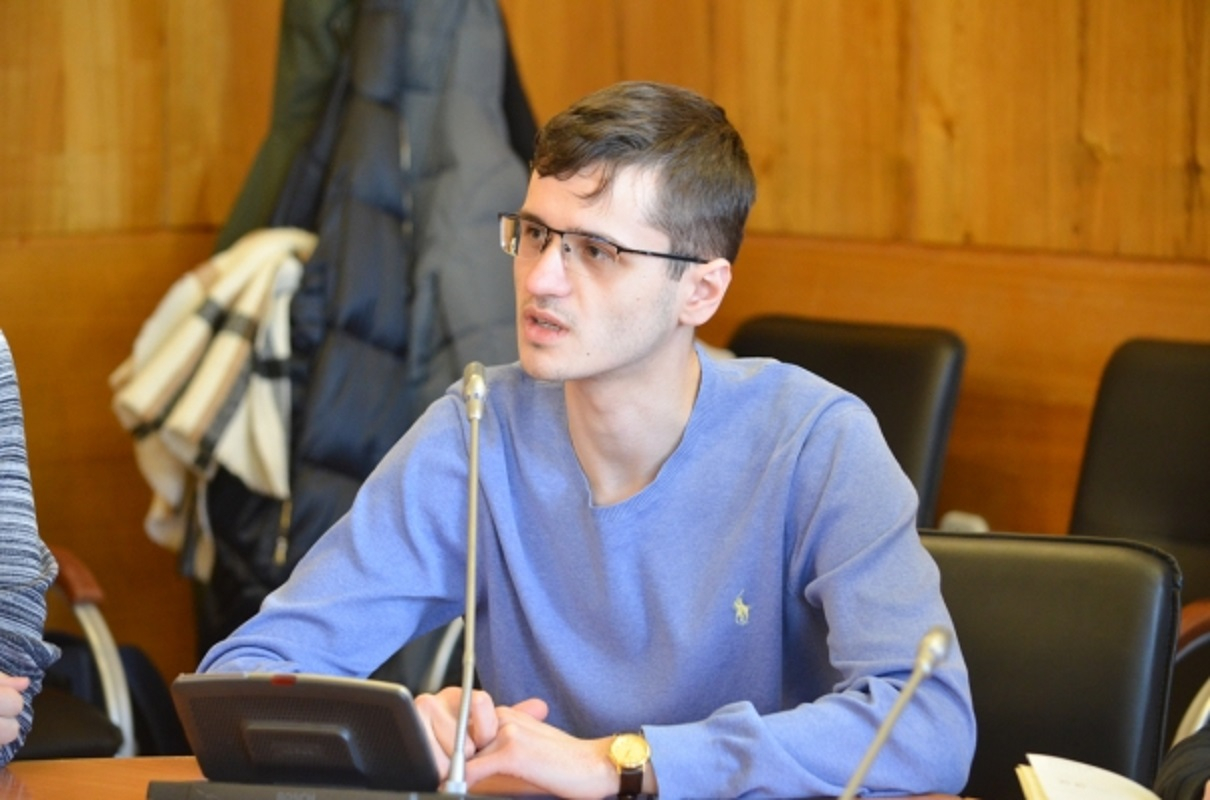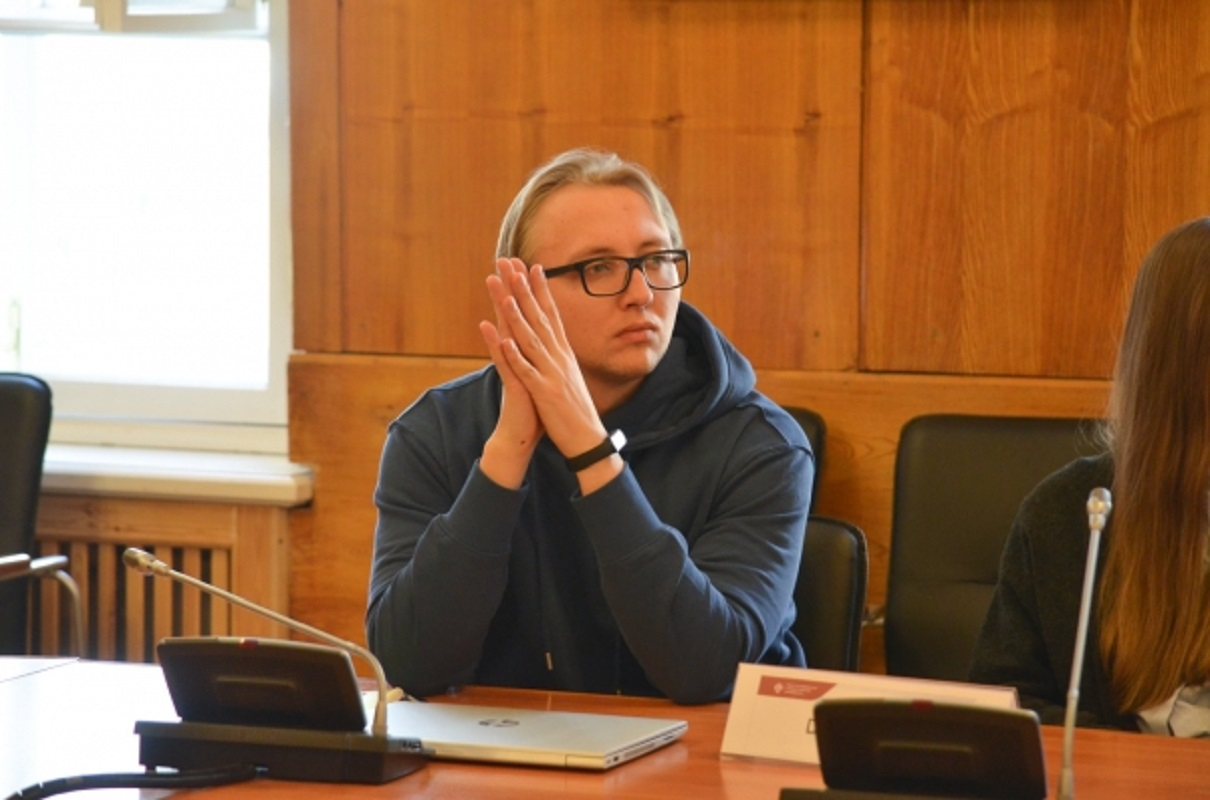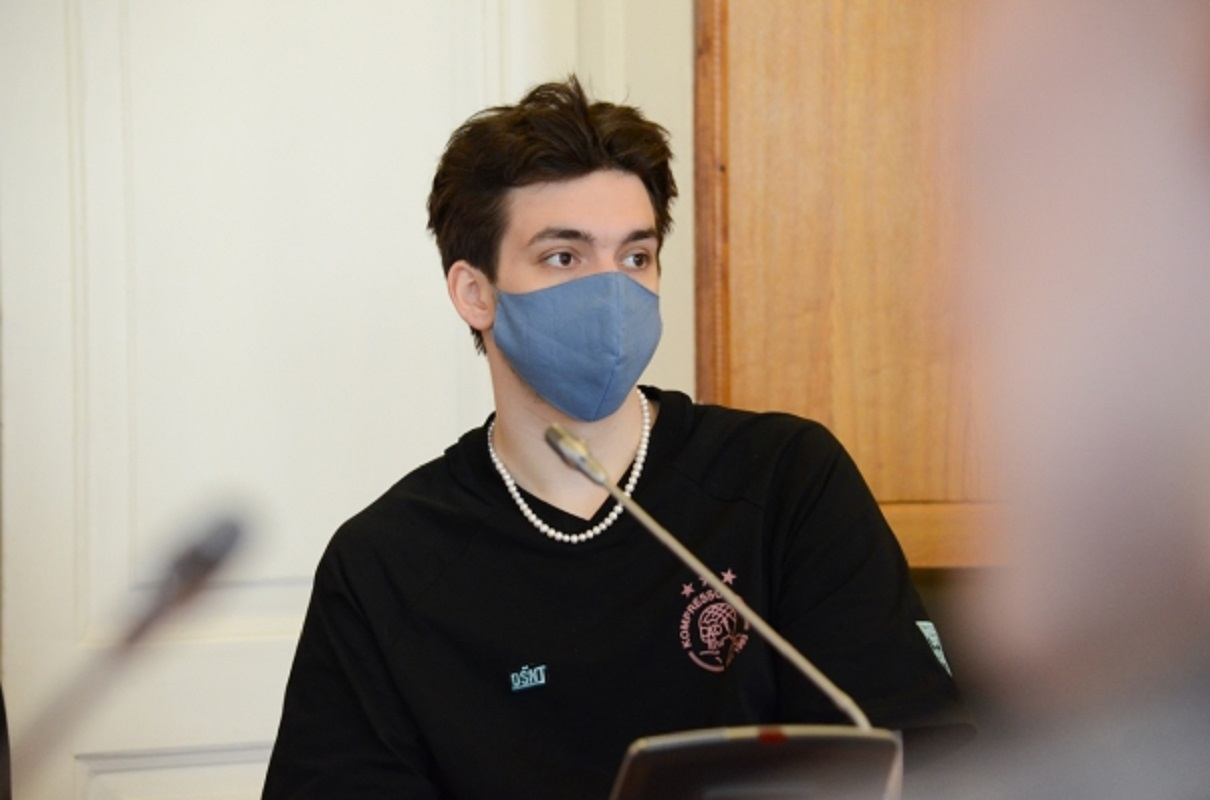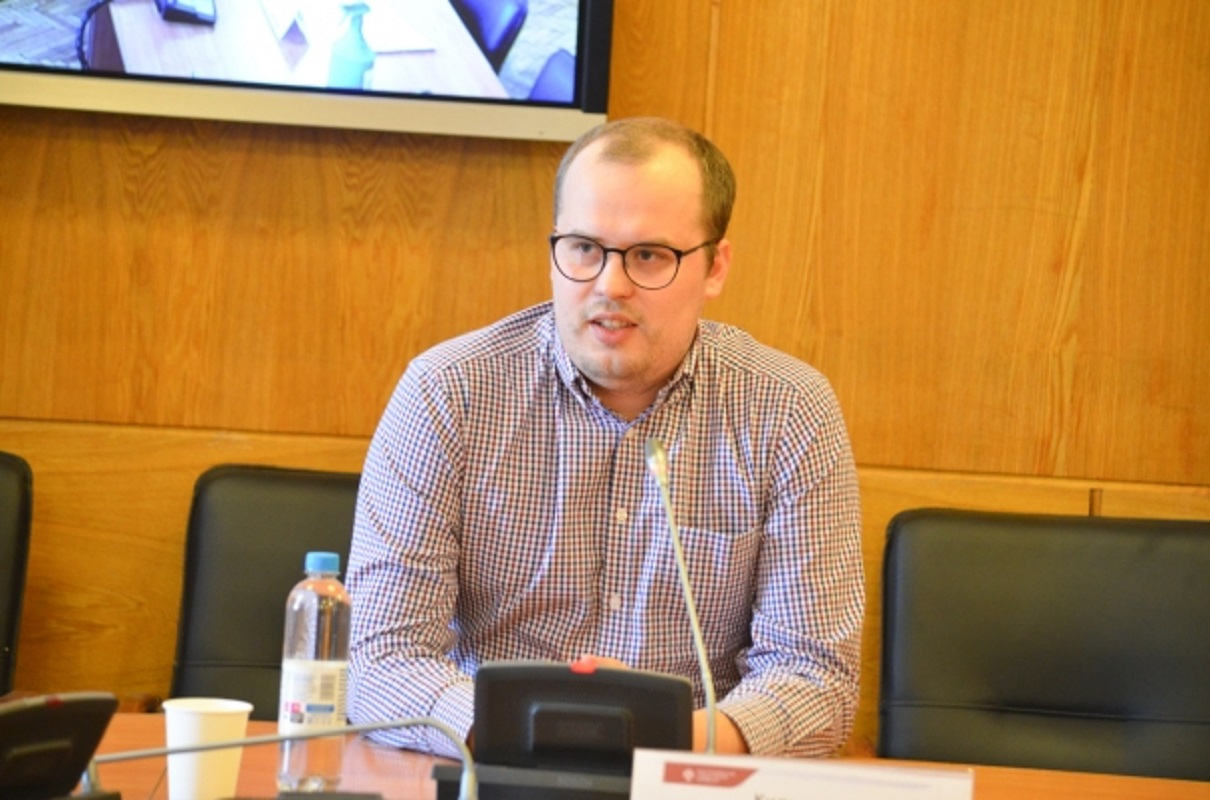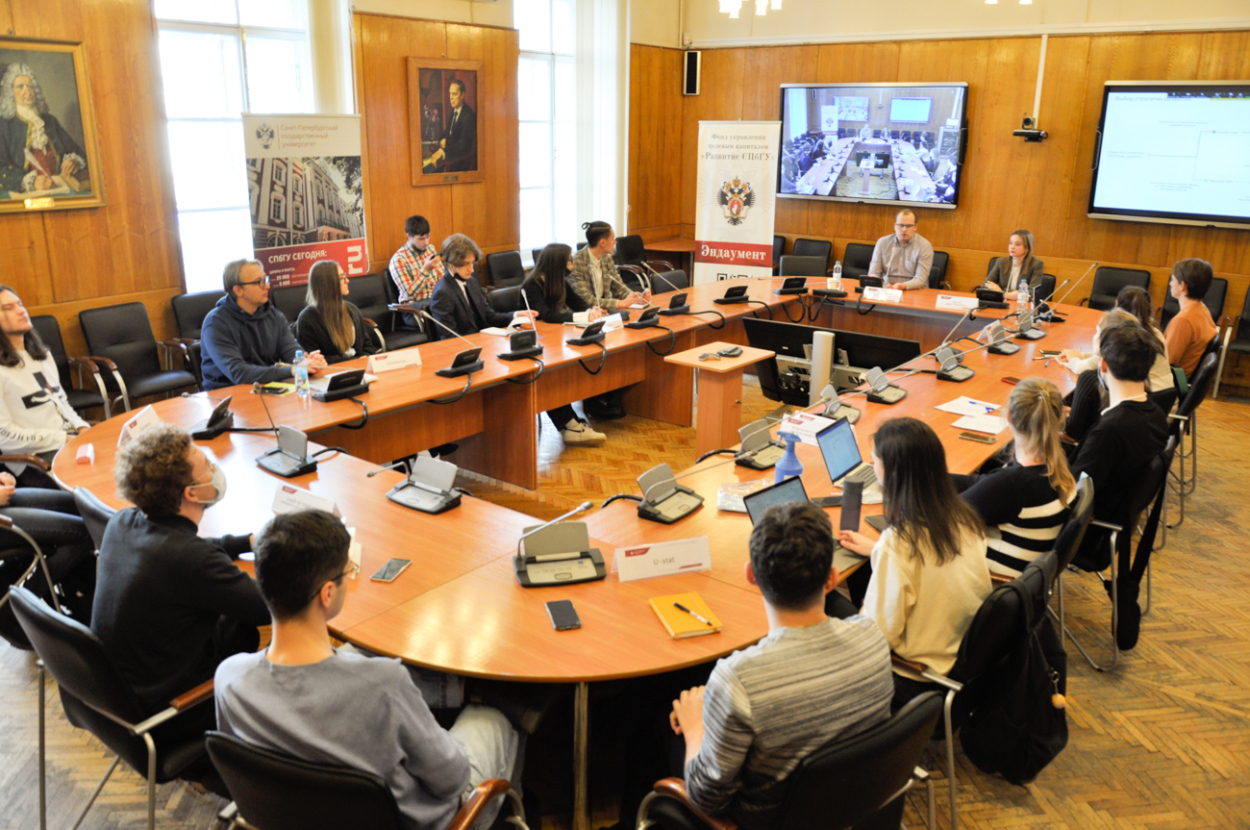Science or business? St Petersburg University uncovers development tracks of start-up projects
There is less than a week until the finals of the SPbU Start-up 2022 contest. On 24 May 2022, eight student teams will present their developments to the jury. In the meantime, the students are finishing their innovative projects, attending workshops and seminars, and receiving advice from business representatives.
During the round table, which was organised at the University with the support of the Endowment Fund of St Petersburg University, Evgenii Kirianov, Head of the Product Development Department at the Gazpromneft Science and Technology Centre, and Daria Pavlova, Leading Specialist of the HR and Organisation Development Unit, told the students about possible ways to develop start-up projects and answered questions from aspiring entrepreneurs.
Evgenii Kirianov drew attention to the difference between a business that has a clear, time-tested business model, and a start-up that is still looking for that. Entrepreneurs who have decided to start working on an innovative project do not know in advance how their product will pay off and whether it will become profitable at all. To find out whether they have managed to meet the needs of consumers and subsequently conquer new markets, they are forced to take risks.
A start-up is a temporary organisation that is created in order to find a successful business model and organise a large, powerful company.
Evgenii Kirianov, Head of the Product Development Department at the Gazpromneft Science and Technology Centre
During work on their project, teams with a certain initial concept or prototype can choose one of two ways of development. Those who are ready to dive into the issues of company management and make responsible decisions should take a closer look at the business track, which, in turn, is divided into cooperation with venture business and the development of their own start-up. However, if developers are more interested in the product itself than in its sales, then the scientific area will be the most suitable for them. The further choice of support tools depends on which direction the team decides to move in.
The business track of start-up development is associated with significant risk. According to statistics, no more than 3% to 5% of projects survive. Those who would like to devote themselves to solving technological problems and testing hypotheses will follow the scientific way. Despite the fact that the developers will not be able to receive such income as in the venture business, they will have the opportunity to engage in interesting projects in a comfortable environment. This track is also divided into two blocks: a scientist in science and a scientist in business.
In his speech, Evgenii Kirianov spoke about: the existing types of non-refundable investments (contest prizes, financing or reimbursement of expenses); a support in exchange for a company share (receiving funds from venture funds, accelerators and angel investors); bank loans; and crowdfunding platforms.
Evgenii Kirianov, Head of the Product Development Department of the Gazpromneft Science and Technology Centre, noted that to form a working business model one requires a clear understanding of the following: how to create a product; how to make it attractive for buyers; what price the product will have; and the target audience.
Daria Pavlova, Leading Specialist of the HR and Organisation Development Unit, added that a specialist with experience in start-up projects: has a deep understanding of the market; and is able to form and test hypotheses in order to bring them to a scalable market. Despite the fact that start-up projects usually do not exist for long, their participants manage to acquire important skills, including the ability to work in a team in a short time. During this time, entrepreneurs themselves gain experience working on real projects with a high level of responsibility and find practical application of the knowledge gained at the university.
The round table was of significant help for our team. After communicating with representatives from Gazprom, we were able to choose the most acceptable development strategy for us, including learning a lot of interesting things about other accelerator contests where we could find support for our project.
Aleksei Pakhomov, Head of the U-stat team project
Thanks to participation in the round table, the finalists of the SPbU Start-up 2022 contest were able to learn about the problems faced by high-tech projects and ways to solve them; got acquainted with the range of possible sources of funding and criteria for determining suitable support tools; and also listened to the opinion of professionals on how to choose the appropriate vector for the development of their start-up projects.


